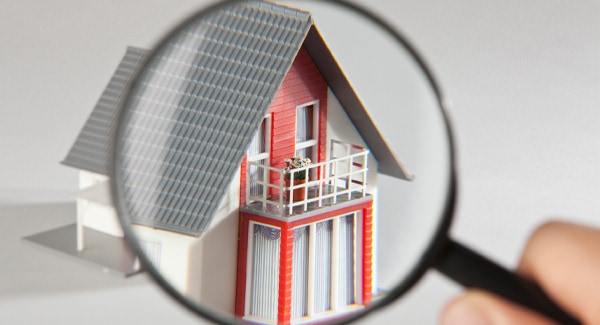
Last Updated on October 18, 2023
It’s a good idea to know the ins and outs of a mortgage before you sign one, so let’s dive into what it is, what it’s made of, and how to pay it off.
Simply put, a mortgage is a real estate loan. You get a mortgage from a bank or lender that allows you to purchase a home, and that new home serves as collateral for the loan. This means the bank or lender can take your house back if you fail to pay off the loan according to the terms of the mortgage.
A monthly mortgage payment has four pieces: principal, interest, insurance and taxes.
What is principal?
The principal is the total amount you borrowed, less any payments you’ve made toward that amount. So if your home cost $300,000 and you made a down payment of 20%, your principal will be $300,000 minus $60,000, or $240,000. With a fixed-rate mortgage, your monthly payments are set up so that you’ll have the entire principal amount paid off by the end of your mortgage term.
For example, if you have a 15-year fixed-rate mortgage, your principal will be down to zero at the end of those 15 years. With a fixed-rate 30-year mortgage, you’ll still be paying back some of your principal each month, but it will be a smaller amount, because you have twice as long to pay it off.
What is interest?
Interest is the second piece of your monthly mortgage payment. It’s basically the price you’re paying the bank or lender for the benefit of having them cover the cost of your home up front.
The two factors that determine your monthly interest payment are the interest rate and the principal. The higher both or either of those, the more you’ll be paying each month. That’s why it’s a good idea to shop around for the lowest interest rate available when you’re looking for a mortgage lender. If you find a low rate and you can fix it there for the duration of your mortgage, it will help keep your monthly interest payment down.
Your down payment also affects your interest rate, because it can lower your principal from day one of your mortgage term. The less principal you have on day one, the less interest you’ll be paying for the duration of your mortgage.
What types of insurance are included in a mortgage?
Homeowners insurance is generally included in your mortgage. Some mortgage lenders will collect the premium on your homeowners insurance policy, keep it in an escrow account, and they pay the insurance bill when it’s due.
Escrow is a type of account where money can be safely stored until a transaction is made using that money. In the case of most mortgages, funds to cover your homeowners insurance and property taxes will stay in escrow until they’re needed. The bank or lender generally calculates how much you need to pay monthly to ensure you have enough in escrow when the insurance and tax bills are due.
Homeowners insurance can cover the cost of repairs from fire and storm damage, accidents, and more. Most lenders require that you have a homeowners insurance policy, but make sure you find out whether it’s covered in your monthly mortgage payment so you don’t accidentally lose your coverage by not paying your bill.
The second type of insurance you may need is called mortgage insurance. Most banks and lenders require mortgage insurance for home buyers who make a down payment that’s less than 20% of the home price. The two types of mortgage insurance are private mortgage insurance, or PMI, and government-backed mortgage insurance (FHA or VA loans, for example). Both types of mortgage insurance premiums usually get calculated into your monthly mortgage payment.
How do property taxes work?
Your monthly property tax payment depends on where you live and how much your home is worth. To calculate your annual tax payment, multiply your town’s tax rate by the assessed value of your home.
Property tax rates are determined by county, city or town governments, so where your home is located can be an important factor in how much you’ll end up paying in property taxes.
For property tax purposes, the value of your home is determined by an assessment, not by the price you paid for it. Assessments are done by your taxing authority (your county, town or city government).
Want to know the amount of your property assessment? There are three ways to find out. First, you should receive a tax bill from your local tax assessor. This bill lists the assessment value and the tax rate where your home is located. Property tax assessments and rates are public records, so you should also be able to find this information online. Many local county recorder’s offices, for example, have portals that allow you to type in your exact address and get a current assessment amount.
A third way to learn the assessed value of a home is to go in person to the local tax collector’s office. You can get this information for free, but you may need identification and proof of your address. You can also arrange an appointment with many local offices.
What is foreclosure?
When a homeowner doesn’t pay back the mortgage according to the terms of the loan, they go into what’s called default, and the bank or lender can perform a foreclosure, which means they take the house back from the homeowner.
Lots of different circumstances can cause someone to go into default, from unforeseen medical bills to a homeowner losing her job. Many lenders will work with homeowners in default to avoid foreclosure. For example, they may allow for a refinance that lowers the monthly mortgage payment. Some lenders may participate in government assistance programs designed to help homeowners avoid foreclosure.
What is home equity?
Equity is simply the amount of your house that you truly own. It’s the difference between the home value in today’s real estate market and the outstanding balance on your mortgage. You gain home equity in two ways: by paying back the principal on your mortgage, and when your home value increases in the real estate market.
The amount of your down payment is the first equity you put into your home. Every time you pay back some of the principal, you’re adding to that equity. Your home’s value in the real estate market is partially under your control (remodeling, home improvement, investing in curb appeal) and partially out of your control (changes to the desirability of your town or neighborhood).
What is a second mortgage?
A second mortgage, also called a home equity loan or line of credit, is a way to borrow money using the value of your home. Just as your home is collateral in a first mortgage, it’s also collateral in the second mortgage. In the case of a second mortgage, you’re borrowing against the equity of your home.
Home equity loans have some important advantages and disadvantages. They give you access to a large sum of money, sometimes all at once, which can be helpful for certain expenses. They also tend to have lower interest rates than other types of loans or credit lines.
However, with this loan you’re putting your house on the line. If you can’t pay it back with interest, you could face foreclosure, just as you would with a first mortgage. Securing a second mortgage can also add up when you factor in origination fees, appraisals, and other closing costs.
Just like you would with a first mortgage, you should shop around and get quotes from a few lenders before you decide to close on a second mortgage.
What is a refinance?
A mortgage refinance replaces your existing mortgage with a new one. Many homeowners use a refinance to reduce their monthly mortgage payments through a lower interest rate, a longer term, or getting rid of mortgage insurance premiums. A refinance is also a chance to change lenders. You can choose the bank or lender for each refinance you go through.
The process of refinancing tends to be shorter than the process of getting an original first mortgage. However, you will still go through an approval process and there will be costs associated with the refinance. You will usually go through a credit check and a home appraisal, and there will be some additional paperwork required.
How does a mortgage affect my federal and state taxes?
You may have already heard about the tax benefits of owning a home. Tax laws do change, and tax benefits vary from household to household, but there are some mortgage expenses that are generally tax-deductible, including mortgage interest, home equity interest if the loan was used for property improvements, private mortgage insurance, and property taxes.
These deductions are only applicable for tax payers who choose to itemize their deductions, rather than use the standard deduction. The Tax Cuts and Jobs Act, which took effect in 2018, almost doubled the standard deduction, meaning less households will choose to itemize, and therefore won’t take deductions on mortgage expenses. The Tax Cuts and Jobs Act also put a $10,000 cap on the state and local property tax deduction.
Now that you know the ins and outs of the mortgage world, you may be ready to learn about down payment options.
Related mortgage topics:
How much home can I afford? Getting pre-approved for a mortgage What should my credit score be to buy a house



